S.L. Viehl's Blog, page 180
November 13, 2011
Only in Novels Ten
Ten Things Women Do Only in Novels
Are Purseless: Women in novels rarely carry purses. In real life, that's like being a medic without a carry-in. I'm not particularly in love with purses -- I own exactly one -- but I feel unarmed if I go anywhere without it. There are exceptions, of course; my daughter flatly refuses to carry one (something I secretly admire, actually.)
Confront an Intruder: I am amazed at how often women in novels will get out of bed in the middle of the night to investigate the glass-breaking sound out in the living room. Alone, unarmed, drowsy and dressed in my pajamas? I'm going to do the sensible thing and call 911 on the cordless as I climb out through a window and run away.
Dash on Makeup: I don't wear makeup anymore, but back when I did it took at least ten minutes, not the five seconds it takes in novels, to apply. Now there are so many different products I think you need a degree in chemistry to figure out how to use them. Also, women in novels all seem to be makeup experts who always get it on perfectly the first try. I envy this greatly, as I have never gotten it on right the first try.
Eat Indiscriminantly: Calories remain completely uncounted in novel world. Or maybe the food has no calories, or all the women there have incredible metabolisms which allow them to eat anything they want and never gain an ounce. Which is why I want to go live in Novel World. Now, please?
Flaunt Their Scars: No matter what physical or emotional trauma was involved, novel women like to show off their scars. They often dress specifically to reveal them, and have no problem discussing -- with total strangers -- how they got them. This is certainly a healthy attitude, but not a realistic one. Those of us who have noticeable scars usually dress to cover them up so we don't upset other people or have to talk about them.
Have No Allergies: Women in novels are disgustingly healthy in general, and almost always allergic to nothing. I marvel at this, especially during the Spring when most of my female friends are mainlining Claritin just so they can walk outside to get the mail. My mom is so allergic to mangoes simply touching one makes her break out in a rash. I'm the same with ficus trees. It doesn't seem fair.
Never Use Mobiles: Another reason I'd like to go live on Fiction Planet; none of the women who inhabit it are on their cell phones 24/7. In my world I can't escape the mobile phone addicted females; they're everywhere. And the texting while driving. God. Don't even get me started on that.
Wear Any Old Thing to Go Out: Outside the chicklit genre women in novels appear supremely unconcerned with how they dress. They're almost like guys in how little they think about their clothes. Not so in real life; just find yourself an average lady and watch what happens when she has to get dressed to leave the house. Nations have risen and fallen in less time. While you're at it, bring popcorn, a drink and a comfortable lawn chair for the makeup and hair phase of getting ready to go out.
What have you noticed that women do only in novels? Add your observations in comments.
Are Purseless: Women in novels rarely carry purses. In real life, that's like being a medic without a carry-in. I'm not particularly in love with purses -- I own exactly one -- but I feel unarmed if I go anywhere without it. There are exceptions, of course; my daughter flatly refuses to carry one (something I secretly admire, actually.)
Confront an Intruder: I am amazed at how often women in novels will get out of bed in the middle of the night to investigate the glass-breaking sound out in the living room. Alone, unarmed, drowsy and dressed in my pajamas? I'm going to do the sensible thing and call 911 on the cordless as I climb out through a window and run away.
Dash on Makeup: I don't wear makeup anymore, but back when I did it took at least ten minutes, not the five seconds it takes in novels, to apply. Now there are so many different products I think you need a degree in chemistry to figure out how to use them. Also, women in novels all seem to be makeup experts who always get it on perfectly the first try. I envy this greatly, as I have never gotten it on right the first try.
Eat Indiscriminantly: Calories remain completely uncounted in novel world. Or maybe the food has no calories, or all the women there have incredible metabolisms which allow them to eat anything they want and never gain an ounce. Which is why I want to go live in Novel World. Now, please?
Flaunt Their Scars: No matter what physical or emotional trauma was involved, novel women like to show off their scars. They often dress specifically to reveal them, and have no problem discussing -- with total strangers -- how they got them. This is certainly a healthy attitude, but not a realistic one. Those of us who have noticeable scars usually dress to cover them up so we don't upset other people or have to talk about them.
Have No Allergies: Women in novels are disgustingly healthy in general, and almost always allergic to nothing. I marvel at this, especially during the Spring when most of my female friends are mainlining Claritin just so they can walk outside to get the mail. My mom is so allergic to mangoes simply touching one makes her break out in a rash. I'm the same with ficus trees. It doesn't seem fair.
Never Use Mobiles: Another reason I'd like to go live on Fiction Planet; none of the women who inhabit it are on their cell phones 24/7. In my world I can't escape the mobile phone addicted females; they're everywhere. And the texting while driving. God. Don't even get me started on that.
Wear Any Old Thing to Go Out: Outside the chicklit genre women in novels appear supremely unconcerned with how they dress. They're almost like guys in how little they think about their clothes. Not so in real life; just find yourself an average lady and watch what happens when she has to get dressed to leave the house. Nations have risen and fallen in less time. While you're at it, bring popcorn, a drink and a comfortable lawn chair for the makeup and hair phase of getting ready to go out.
What have you noticed that women do only in novels? Add your observations in comments.
Published on November 13, 2011 21:00
November 12, 2011
Sub Ops
Rob Tucker of the very interesting UK-based Circalit sent me a heads up on three of their current competitions:
Get Your Comedy Sketch Produced by an Award-Winning Director
Ever had an idea for a comedy sketch? Circalit is back once again helping talented comedy writers get their sketches produced and distributed. This time Circalit has teamed up with award-winning filmmaker, Jason Wingard, whose most recent short, "Ben and Jackie" has been short-listed for the Virgin Media Shorts 2011 and the Reed.co.uk Short Film competition. The competition is part of Circalit's Get your Film Made series. The winning script will be directed by Jason, who has worked alongside fantastic comedians such as Johnny Vegas, and companies such as Channel K, MTV and 2-Entertain. Participants are actively encouraged to collaborate with one another to produce the best, most groin-tearingly funny piece of comedy they can. The deadline is Thursday 16th December, and submissions are being read as soon as they're submitted - so the sooner you enter the better! For more details, check out: http://www.circalit.com/projects/comp....
Portal Entertainment and Circalit on the Search for the Writers of Tomorrow ~ £6K Global Writing Competition to Create a Storyworld
Portal Entertainment has announced a £6k global writing competition to create a storyworld: that is, a story told using different types of media across multiple platforms. The winner of the competition will receive £6k to develop their storyworld with Portal Entertainment. The top 5 entries will be given professional feedback from BBC Multiplatform Executive Producer Sarah Clay (Becoming Human, Waterloo Reunited, E20). The deadline for entries is 21st November. For more information please visit www.circalit.com/projects/competition....
Chance Encounters: The Circalit Flash Fiction Competition
In partnership with London's trendiest hangout for creatives, The Hospital Club (www.thehospitalclub.com), and their poet-in-residence, the lyrical prodigy Sabrina Mahfouz, Circalit are extremely pleased to announce a new flash fiction writing competition. Writers are challenged to create a one page story, of whatever genre they please, on the subject of 'A Chance Encounter'. Sabrina herself will be reading the winning story for an exclusive video-recording and podcast, which will be available on the hospital club website. The winning story will play in the club's lifts and video screens, and will be plastered up throughout the Hospital Club's halls for all its glitzy patrons, who include the likes of James Morrison, Kate Moss and Jude Law, to read and enjoy. This is a great opportunity to have your story exposed to a wide and varied creative audience in an original way. The deadline for entries is 1st December. Visit http://www.circalit.com/projects/comp... for more information.
Get Your Comedy Sketch Produced by an Award-Winning Director
Ever had an idea for a comedy sketch? Circalit is back once again helping talented comedy writers get their sketches produced and distributed. This time Circalit has teamed up with award-winning filmmaker, Jason Wingard, whose most recent short, "Ben and Jackie" has been short-listed for the Virgin Media Shorts 2011 and the Reed.co.uk Short Film competition. The competition is part of Circalit's Get your Film Made series. The winning script will be directed by Jason, who has worked alongside fantastic comedians such as Johnny Vegas, and companies such as Channel K, MTV and 2-Entertain. Participants are actively encouraged to collaborate with one another to produce the best, most groin-tearingly funny piece of comedy they can. The deadline is Thursday 16th December, and submissions are being read as soon as they're submitted - so the sooner you enter the better! For more details, check out: http://www.circalit.com/projects/comp....
Portal Entertainment and Circalit on the Search for the Writers of Tomorrow ~ £6K Global Writing Competition to Create a Storyworld
Portal Entertainment has announced a £6k global writing competition to create a storyworld: that is, a story told using different types of media across multiple platforms. The winner of the competition will receive £6k to develop their storyworld with Portal Entertainment. The top 5 entries will be given professional feedback from BBC Multiplatform Executive Producer Sarah Clay (Becoming Human, Waterloo Reunited, E20). The deadline for entries is 21st November. For more information please visit www.circalit.com/projects/competition....
Chance Encounters: The Circalit Flash Fiction Competition
In partnership with London's trendiest hangout for creatives, The Hospital Club (www.thehospitalclub.com), and their poet-in-residence, the lyrical prodigy Sabrina Mahfouz, Circalit are extremely pleased to announce a new flash fiction writing competition. Writers are challenged to create a one page story, of whatever genre they please, on the subject of 'A Chance Encounter'. Sabrina herself will be reading the winning story for an exclusive video-recording and podcast, which will be available on the hospital club website. The winning story will play in the club's lifts and video screens, and will be plastered up throughout the Hospital Club's halls for all its glitzy patrons, who include the likes of James Morrison, Kate Moss and Jude Law, to read and enjoy. This is a great opportunity to have your story exposed to a wide and varied creative audience in an original way. The deadline for entries is 1st December. Visit http://www.circalit.com/projects/comp... for more information.
Published on November 12, 2011 21:00
November 11, 2011
Blade Maker
Joel Bukiewicz of Cut Brooklyn explains how he made the leap from fiction writer to knife maker (narrated with a few R-rated words, but beautifully told):

Made by Hand / No 2 The Knife Maker from Made by Hand on Vimeo.
Published on November 11, 2011 21:00
November 10, 2011
NaNoWriMo: Resistance
 You NaNoWriMo'ers out there are a week and a half into writing your November novel, and so far I bet it's probably going pretty well for most of you. There were those first couple of days when you started this story -- thrilling, scary as hell, or somewhere in between -- but you got through them okay. You've navigated a few bumps but you've also made some progress. You've probably cheated at least once to go back and read over what you've written, and maybe even tinkered with a few lines. And you may be convinced that because of this you will keep on writing book-length fiction for the rest of the month, if not the rest of your natural life.
You NaNoWriMo'ers out there are a week and a half into writing your November novel, and so far I bet it's probably going pretty well for most of you. There were those first couple of days when you started this story -- thrilling, scary as hell, or somewhere in between -- but you got through them okay. You've navigated a few bumps but you've also made some progress. You've probably cheated at least once to go back and read over what you've written, and maybe even tinkered with a few lines. And you may be convinced that because of this you will keep on writing book-length fiction for the rest of the month, if not the rest of your natural life.Only today or tomorrow or a couple days from now, you'll go to the keyboard, open the novel file, and not want to write anything new. There's this other idea you had, you see, that was so much better. Or you've backread what you've written more than once, tinkered quite a bit, and despite that this story is simply not turning out the way you expected.
It's strange, isn't it? Characters who used to be deep and interesting and fun to hang with suddenly grow a little old and boring. The decision to set the novel in [fascinating place] that seemed so smart now feels a little dumb because you've discovered just how much you don't really know about [fascinating place]. There's that awful plot hole that you didn't see before but you keep braking at or running over. But it's only been a week and a half, and you can scrap these two or three chapters and start over, right?
Writers have different references for this period with the work. We say we're a little blocked, or the honeymoon is over, or the muse is fighting us. We have so many analogies for this point with the work we could probably write a book about them.
The fact is, in most cases, the new and shiny has worn off. What was cool and exciting and kept us at the keyboard until 2 a.m. every night suddenly feels like a job. A job for which there is no paycheck waiting at the end of the week. A job that might be more to way more than we can handle.
Remember the doubt that tried to keep you from writing this book? That almost had you convinced that you couldn't do it. Say hello; it's back. Despite the fact that Halloween is over it's wearing a mask and costume. It isn't interested in treats; it wants only to trick you. It's here to keep you from writing, and what better way that to make you think the work you've done is boring, useless and ultimately worthless?
You don't have to keep writing, of course. You can stop now and start over with another idea. You can take a break from writing for a couple days, maybe a week. You can drop out of NaNoWriMo and promise to do it next year. You can do any of these things; no one will stop you. Certainly not your doubt, because that's exactly what it wants. Like the bully back in school, it's only interested in dumping your work (and your butt) in the nearest trash can.
At present the new and shiny has been long gone from my WIP. I wrote a couple of scenes yesterday that were total yawners. I hated them even as I was writing them. No color, no life, just a whole mess of words that made sense but were about as exciting to read as directions on the back of a shampoo bottle. Try as I might, I couldn't get anything better out on the page. I'm tired of these characters, and I want to do something else. But I have only three chapters left to write, and two and a half weeks until my deadline, and I'll be damned if I'm going to stop now. So I kept writing, got it down on the page, mentally spit on it a few times and finished my writing session. Several hours later, when I opened them back up during my daily editing session, I salvaged what I could and slashed through the rest with a note to rewrite.
Rewrites are fine with me because I know that some days I write nothing but crap. This morning I opened the file and moved on to the next scene, and as it happens I'm writing a lot better today. But even if I wrote another pile of manure this time, I'd do the same thing and keep moving forward until I finish the book. Then, as C.J. Cherryh puts it, I will edit brilliantly.
Writing professionally is an endurance marathon, and this is one of those tough stretches in the process when you find out if you have what it takes to be a successful writer. We don't stop when the new and shiny wears off. Successful writers find ways to avoid or at least stall other ideas distract them from the work. We do whatever we can to shut their door in the face of that no-treats, all-tricks doubt. If something dumps us in a trash can, we climb right back out and keep writing. No matter how much it hurts. No matter how much we don't want to.
So how is it going with your NaNoWriMo? Let us know in comments.
Published on November 10, 2011 21:00
NaNoWidgets
A quick heads up before I hit the road: I noticed this morning that the NaNoWriMo site folks had finally posted this year's batch of wordcount widgets. Looks like they're for officially registered users only, but all the same a nice variety.
Also, my thanks to everyone who invested in Nightshine since release day. While it probably won't make an appearance on the Times list, the novel performed well on B&N's lists, coming in at #12 on their romance mm and #38 on their overall mm bestseller lists. The e-book sales for this book are particularly strong, too, and altogether made my editor quite happy.
Also, my thanks to everyone who invested in Nightshine since release day. While it probably won't make an appearance on the Times list, the novel performed well on B&N's lists, coming in at #12 on their romance mm and #38 on their overall mm bestseller lists. The e-book sales for this book are particularly strong, too, and altogether made my editor quite happy.
Published on November 10, 2011 06:54
Testing Picasa
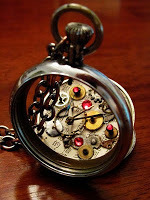
Pardon me while I test this new Blogger feature for photos (and yes, I made the steampunk pendant out of an old pocket watch and some parts.) Small image, no alignment.
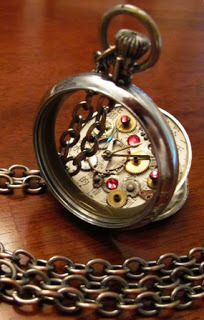 Medium image, right alignment. If this Picasa thing works out I shouldn't have to code image inserts anymore. I may have to actually thank Google for something.
Medium image, right alignment. If this Picasa thing works out I shouldn't have to code image inserts anymore. I may have to actually thank Google for something. Large image, center alignment. Large doesn't seem to be very large.
Large image, center alignment. Large doesn't seem to be very large.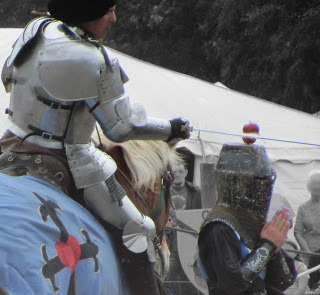 Large image, left alignment. Maybe they're sizing large by comparison to something else. Something that looks larger by comparison, perhaps?
Large image, left alignment. Maybe they're sizing large by comparison to something else. Something that looks larger by comparison, perhaps?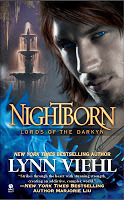
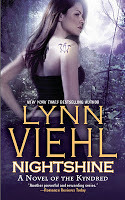
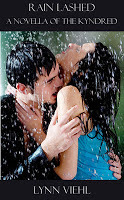
Three covers. Let's see if Picasa stacks them in a row here. (checking preview) Nope.
The new feature works okay, and certainly saves a lot of coding headaches, but I'm so used to resizing and placing my images exactly where I want them that I don't think I'll be using it much.
Published on November 10, 2011 03:41
November 8, 2011
On the Road
 Just a heads up: I'm starting a road trip tomorrow, so any comments you care to leave will probably sit for a while in the approval queue. I'll try to get to them whenever we stop and my kid finds somewhere with free wi-fi (I don't think it will be a problem anywhere but in the mountains.)
Just a heads up: I'm starting a road trip tomorrow, so any comments you care to leave will probably sit for a while in the approval queue. I'll try to get to them whenever we stop and my kid finds somewhere with free wi-fi (I don't think it will be a problem anywhere but in the mountains.)I'll be working while I'm out of town, too, and I thought some of you might like to see what I take with me and how I go about being a mobile PBW. A story can be as portable as you want it to be, as long as you think ahead and plan what you'll need for your writing sessions away from home.
The first thing that goes into the writing tote is my novel notebook, which has my synopsis, chapter outlines, character profiles, research data, visuals and so forth for me to reference. This is another reason for making one; it's convenient to take along on trips.
In a pencil case (one hole-punched to fit in the novel notebook) I stock lots of pens and pencils, of course; I never depend on hotel freebie pens.
A blank notebook also comes along for any new notes, writing to-do lists, or other draft material I may need to jot down (a spiral-bound, one-subject student notebook or composition book have prepunched holes in them, so they should fit nicely into the back of your novel notebook binder.)
A laptop, netbook, smart keyboard or other writing tech to use for writing sessions is a given; for me it's usually the laptop, but if my hands are in pretty good shape I also take an AlphaSmart Neo smart keyboard. The Neo is sturdy, doesn't require special hookups, power supplies (mine runs on batteries) or complicated wiring, can be used practically anywhere but in the shower and doesn't offer the distraction of the internet.
A few blank CDs to backup the work I accomplish while away from home also go into the bag. If your writing tech doesn't burn CDs for you, an alternative is to e-mail whatever writing you do each day to yourself, although if you've had any problems downloading e-mailed files I'd use a secondary form of backup as a safety measure -- maybe send a copy via e-mail to a writer friend to hold for you.
I always write up a daily task schedule to make the best use of my time. On the road I might have two or three hours a day to work, so I try to give myself short, manageable writing assignments. On some trips when I have to fly for more than eight hours or drive for more than four hours every day I will pack a print copy of a recently-finished manuscript with me and do a read-through edit each night (you may want to do an electronic version if your airline has weight restrictions or extra baggage charges.)
If I'm going to be staying at the home of a family member or friend, I also bring a lap desk. In the event there is no desk or table in a quiet area for me to use, I can take a chair to a secluded corner and work off the lap desk.
Finally, I take one book to read for pleasure. I take only one because I usually end up visiting book stores wherever I travel and buying at least five or six more.
What do you take with you on your road trips to help with getting some writing done? Do you have any tips on how to be productive while traveling? Let us know in comments.
Published on November 08, 2011 21:00
November 7, 2011
Scene Focus
Let's pretend this photograph is a scene in a story:
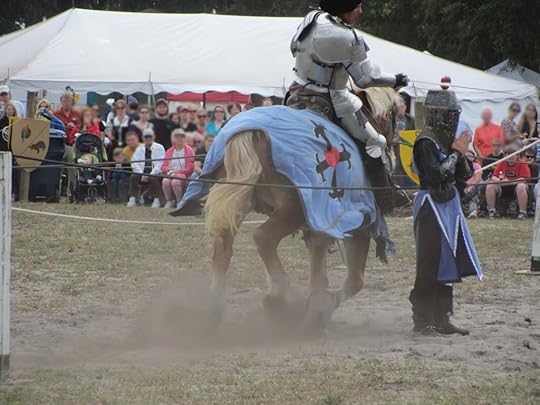
We'll assume that the Renfaire is the setting, the guy on the horse is the protagonist, the guy in the helmet praying is a secondary character, and all those folks in the background is the rest of the cast. As snapshots go I think the action in this one is fairly self-explanatory. All we have to do know is figure out why this is happening.
At first glance things in the photograph do seem a bit busy -- there's a lot to look at. To make the scene more interesting and give it more impact, the first thing I do is narrow the focus and weed out anything that is unnecessary. I do the same thing with a photo by cropping:
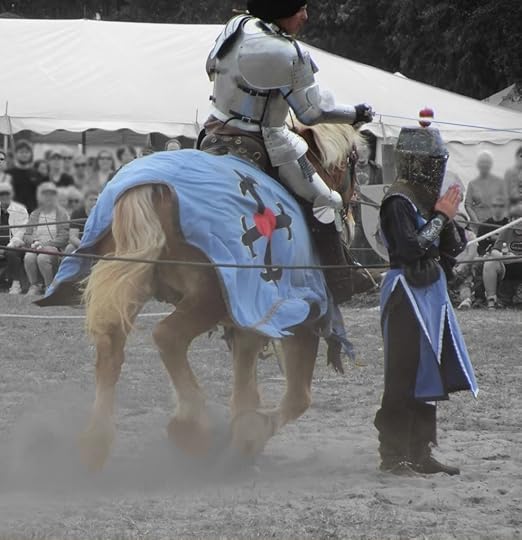
Now it looks a little better, although I felt all those colorful folks in the background were also a distraction, so I toned them down as well by making them black and white (and the facial blurriness among the crowd is also intentional.)
My photo now focuses on the two primary characters and what they're doing. But why is the guy on the horse swinging his sword, and why is the other guy praying? Let's take a closer look:
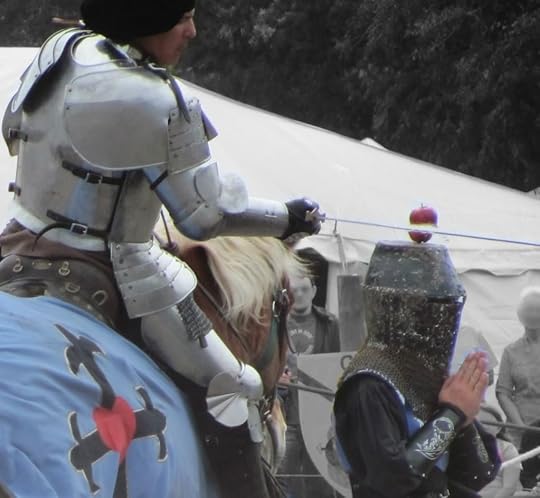
This is the aha moment of the photograph. The protagonist isn't attacking the secondary character; he's taking a swing at an apple on the guy's head. And he's doing that because he wants to . . .
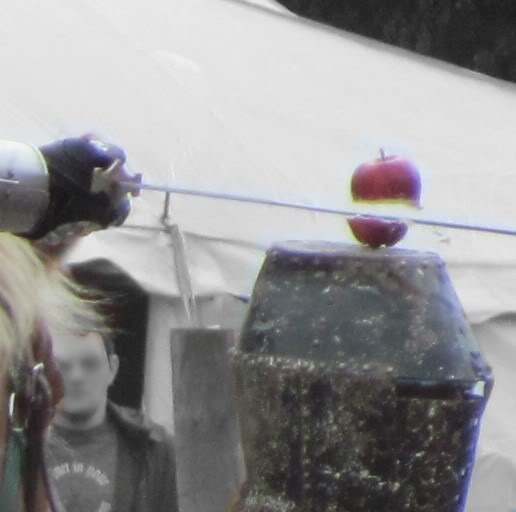
. . . chop the apple in half, of course (and don't ask me how I managed to snap this photo at the precise moment the apple split in two; it was pure dumb luck.)
A scene should illustrate some part of your story as clearly as a series of photographs. When you put together a scene, you need characters, setting, action, and a point to the whole thing. To communicate these to your reader, you need to focus on what is important and enhance that -- while not cluttering up the scene with a lot of unnecessary details.
Here are some scene-focus question to ask yourself (and you can ask these at any time, before you start writing, while you're writing, or when you're editing):
Who's in the picture? Consider how many characters you're showing to the reader in this scene, and determine if they're actually serving a purpose. If they're just standing around do nothing, they're a distraction that can clutter up up the scene and slow the pacing. Put them to work or get them out of the spotlight. You don't have to get rid of all your background characters, but don't shift the reader's focus to them by making them too prominent or colorful.
Who needs to be the main attraction? How are you showcasing the characters who are important in this scene? Are they front and center in your scene, or are they wandering around getting lost in the crowd?
What's happening in this scene? Unless you're writing some abstract literary piece, the reader generally needs to clearly understand the action that occurs. But don't fall in the trap of telling the reader too much via info dumps or As You Know Bob character monologues. When we're watching a scene like this, we don't need to know how much the horse weighs, where it was foaled, the name and home village of the smith who forged the armor, etc.
What's the point? There should be the equivalent to an apple getting sliced in half. It's the reason all of this is happening, and even if you're not ready to come out and explain it to the reader, it still needs to be somewhere in your scene because it is the point.
Got any tips that you want to share on how you keep your scenes sharp and focused? Let us know in comments.

We'll assume that the Renfaire is the setting, the guy on the horse is the protagonist, the guy in the helmet praying is a secondary character, and all those folks in the background is the rest of the cast. As snapshots go I think the action in this one is fairly self-explanatory. All we have to do know is figure out why this is happening.
At first glance things in the photograph do seem a bit busy -- there's a lot to look at. To make the scene more interesting and give it more impact, the first thing I do is narrow the focus and weed out anything that is unnecessary. I do the same thing with a photo by cropping:

Now it looks a little better, although I felt all those colorful folks in the background were also a distraction, so I toned them down as well by making them black and white (and the facial blurriness among the crowd is also intentional.)
My photo now focuses on the two primary characters and what they're doing. But why is the guy on the horse swinging his sword, and why is the other guy praying? Let's take a closer look:

This is the aha moment of the photograph. The protagonist isn't attacking the secondary character; he's taking a swing at an apple on the guy's head. And he's doing that because he wants to . . .

. . . chop the apple in half, of course (and don't ask me how I managed to snap this photo at the precise moment the apple split in two; it was pure dumb luck.)
A scene should illustrate some part of your story as clearly as a series of photographs. When you put together a scene, you need characters, setting, action, and a point to the whole thing. To communicate these to your reader, you need to focus on what is important and enhance that -- while not cluttering up the scene with a lot of unnecessary details.
Here are some scene-focus question to ask yourself (and you can ask these at any time, before you start writing, while you're writing, or when you're editing):
Who's in the picture? Consider how many characters you're showing to the reader in this scene, and determine if they're actually serving a purpose. If they're just standing around do nothing, they're a distraction that can clutter up up the scene and slow the pacing. Put them to work or get them out of the spotlight. You don't have to get rid of all your background characters, but don't shift the reader's focus to them by making them too prominent or colorful.
Who needs to be the main attraction? How are you showcasing the characters who are important in this scene? Are they front and center in your scene, or are they wandering around getting lost in the crowd?
What's happening in this scene? Unless you're writing some abstract literary piece, the reader generally needs to clearly understand the action that occurs. But don't fall in the trap of telling the reader too much via info dumps or As You Know Bob character monologues. When we're watching a scene like this, we don't need to know how much the horse weighs, where it was foaled, the name and home village of the smith who forged the armor, etc.
What's the point? There should be the equivalent to an apple getting sliced in half. It's the reason all of this is happening, and even if you're not ready to come out and explain it to the reader, it still needs to be somewhere in your scene because it is the point.
Got any tips that you want to share on how you keep your scenes sharp and focused? Let us know in comments.
Published on November 07, 2011 21:00
November 6, 2011
Have at Them Ten
 The war between the self-pubbed and the not self-pubbed escalated recently when some ugly words were slung back and forth at the authorial front lines. I won't link to or repeat the most painfully uninventive slapdown that was employed, but I do find the lack of imagination appalling.
The war between the self-pubbed and the not self-pubbed escalated recently when some ugly words were slung back and forth at the authorial front lines. I won't link to or repeat the most painfully uninventive slapdown that was employed, but I do find the lack of imagination appalling.It's NaNoWriMo, people. Why aren't we setting the proper example for the next generation? Where is the creativity here? Publicly insulting our peers when they don't agree with us should be something writers do with style (we certainly have no problem in private.)
Honestly, if you can't think of something beautifully rotten enough to throw in the face of your colleague and make them feel instantly inferior, then you should never even attempt to squabble over whose publisher is bigger, whose method of publishing is better, or who is making more money. We do have some standards, you know. Sit down, practice and start building some vicious insult lists. I mean it -- next time you have a tantrum I expect much better name-calling.
To get you started, here are:
Ten Inventive Names You Can Use to Insult a Published Author
Book Bondservant: An elegant volley to hurl at the unfashionably print-obsessed. Works well paired with an estimate of how many trees we've killed, how much ink we've wasted, or the diameter of the crater that is our professional carbon footprint. Bonus points: Use alliteration to work in at least one Borders/brachiosaurus analogy.
Creative Chattel: Can be employed to hurt the feelings on either side. Observe how self-absorbed we artistic types are, mention three better-paying day jobs that aren't as difficult, quote (if available) the Kirkus review for their last novel, and sit back to watch the fur fly.
DIY Drudge: Should be fired off at the self-pubbed during rants about lousy editing, blurry cover art and laundry-list storytelling. Additional ammo: Alert all your pro pals on LinkedIn to attack the drudge for not spending a thousand dollars to hire a professional cover artist.
Fiction Fido: Another name that works well for either side, particularly when either side of Publishing is being likened to puppy mills and pet shops. Pour some additional petrol on the pyre by woofing at anyone who objects to being called Publishing's bitch.
List Laborer: Once reserved for the not self-pubbed, contempt for those who aspire to have a book rank on a prestigious bestseller list no longer has to be unilateral; thanks to the Times you can now hurl this bomb at both armies. Be sure while you do that you emphasize the lists are fixed, the lists don't matter, or that no one with a brain pays any attention to them.
MySpace Menial: Unfortunately we're phasing out this self-promo sneer due to lack of use. Please wait until we compile a new heap of dung for the updated version (working insult title: Facebook Fool.)
Publishing Peon: All-purpose, nicely nasty slingshot that also insinuates just how stupid the not-self-pubbed are for refusing to bask in the joy, freedom and piles of money to be had by becoming digital self-publishing's tart. Fires best from the lofty, virginal position of one who never stooped to sacrifice a single copper to fiction's feudal lords because they foolishly refused to recognize your genius.
Self-pubbed Serf: The flip side of the Publishing Peon, to be used whenever a digital platform publisher screws up, a print-pubbed author strikes a series deal with HBO, or a major publishing house signs Amanda Hocking.
Text Thrall: Until electronic ink technology improves a bit more, best for use against print pubbed. Allude to writers locked in at a conference, chained to a hotel room desk and fed only bread, water and mystery chicken while they struggle through revisions that would never have been necessary if only they'd seen the digilight, and you've got yourself a lovely and colorful putdown.
Writing Workhorse: This one can be thrown at authors on either side, as said authors are overweight, underappreciated, overworked and undervalued. For that matter, why publish at all? Books are a waste of time better served watching American Idol, Dancing with the Stars, or keeping up with that hard-working, endlessly talented, hopelessly romantic
Published on November 06, 2011 21:00
November 5, 2011
NaNoWriMo: Writing Your Dragons
 I am not a fan of dragons, dragon fiction, dragon mythology or most anything that involves gigantic scaly winged reptilian beasts that breathe fire. This is mostly because dragons are generally depicted as the blockheads of epic fantasy. Think about it: despite their size, powers and supernatural abilities, fictional dragons are forever sucking up to humans, bonding with them or giving them pony rides during some idiot quest for a priceless artifact that is usually 100% useless to dragons.
I am not a fan of dragons, dragon fiction, dragon mythology or most anything that involves gigantic scaly winged reptilian beasts that breathe fire. This is mostly because dragons are generally depicted as the blockheads of epic fantasy. Think about it: despite their size, powers and supernatural abilities, fictional dragons are forever sucking up to humans, bonding with them or giving them pony rides during some idiot quest for a priceless artifact that is usually 100% useless to dragons.Don't worry, dragon lovers, I've already been punished for not showing the proper appreciation and respect. I have to depend on a dragon in order to write, have withstood innumerable online flame attacks, and have a kid who adores dragon fiction, dragon art and dragon jewelry. If I'm not talking to or being yelled at by a dragon, I'm shopping for the damn things.
Since it seems that I will never get dragons out of my life, I've decided to surrender and embrace them. Chris D'Lacey, I'm finally going to read your books. That goes for you, too, Paolini. I will watch all The Lord of the Rings movies (they had dragons in them, right?) and all the others that everyone loves so much: Dragonheart, Pete's Dragon, The Neverending story, Harry Potter #Whatever . . .
Seriously, I don't like the fact that I dislike dragons so much. I used to enjoy dragon fiction back in my younger days, when I got hooked on the Pern novels of Anne MacCaffrey. She rocked the scaly beasts to no end. Dragons are supposed to be cool, and a lot of my friends like them, and my aversion is kind of unreasonable. Okay, very unreasonable. I was the same way with horses for a long time. Spiders, too. So to conquer this negative attitude, I need to educate myself, learn everything I can about dragons, dragon fiction, dragon mythology, and then write a story about them. In which they will not behave like blockheads.
While you're working on your novel, be it for NaNoWriMo or at any time during your writing life, you will encounter something that makes you feel the same way I do about dragons. It can be almost anything involved in storytelling: description, characterization, grammar, dialogue, setting, plotting, etc. It will be something you really don't like already, or for which you acquire an instant dislike. These are your writing dragons.
You can hate them. You can swear at them, rant about them, you can even try to avoid them. And while you're doing that, they won't be going anywhere. Why should they, when they can feed on your creativity and your motivation -- and feed, they do. The bigger and uglier they get, the more room they take up in your head and the more havoc they create on the page.
Example: the love scene. This writing dragon is deeply loathed and dodged by a lot of writers, I think because for whatever reason sex embarrasses them. So they avoid the love scene dragon, which really isn't a problem because there are plenty of great books with no love scenes and zero sexual content. Even in the romance genre, where the love scene is pretty much expected, there are writers who keep that dragon behind a locked bedroom door or fade to black whenever it (no pun intended) arises and have no problem selling books.
That said, if the love scene is one of your writing dragons, I can almost guarantee it will become a problem for you at some point in your writing career. It's like some kind of weird dragon karma. An editor will ask for it during revisions, or you'll get a shot at a love scene antho that pays fabulous royalties, or you'll simply hit a point in a story where you've got no choice but to write at least part of a love scene. Then you're really screwed.
Another example is one of my long-term writing dragons (ironically, one I rarely talk about): dialogue. For the longest time dialogue was the most difficult part of any story for me to write. I couldn't get it to sound natural on the page. In every scene all my characters ended up standing around either lecturing each other about what I thought the reader should know, or doing that awful teaparty chatter (i.e. Hi, how are you? I'm fine, and you? Great. Beautiful day we're having, isn't it? Yes, it is and on and on and on.) No matter how hard I tried I could not get control of my dialogue. It seemed so unfair, too; every other writer I read tossed it out the page so effortlessly while I was sweating out each and every word my characters uttered.
Dialogue is a huge part of storytelling, and I knew I couldn't hate it and be an effective writer. So I focused on it, read everything I could with great dialogue and then analyzed the writers who did it especially effortlessly. Effortless dialogue is almost audible; it sounds like someone talking in your head while you read it.
I paid attention to the spoken word wherever I went. I became a discreet eavesdropper and listened in on conversations, noting not only what people said but how they said it, what tone they used, their word choices, etc. I practiced -- you really don't want to know how many stories I wrote solely to compose dialogue -- and forced myself to keep at it.
Over time I realized why dialogue was such a writing dragon for me: I was trying too hard to control it. For once being organized and thinking out everything in advance was actually working against me; I learned that I needed to let go, not worry about it, and just let the dialogue happen while I was writing the story. It goes against everything else involved my process, but when it comes to writing dialogue, I do my best work when I'm spontaneous.
My method takes time, so if you encounter a writing dragon while you're working on your NaNoWriMo novel, and it's not a huge beast, you can try another approach to (temporarily) get around it. Let's say for the sake of argument that it's a love scene dragon. Since you have only 24 days left to nail your 50K goal, you don't want to spend 20 of them trying to write one love scene. My advice is to skip over it for now. Type a place holder/reminder tag on the page exactly like this: [love scene between John and Marcia.] Then pick up the story at the point where they're done cuddling and write on from there. You will still have to deal with the love scene dragon eventually, but this allows you to get past it for now.
Whatever your personal writing dragon is, don't run away from it. Face it, educate yourself about it, watch how others do it. Then bridle it, jump on it and write it, and keep writing it at regular intervals. With enough time and practice you can work out your problems with it and nullify any power it has over you. I can't promise you'll ever fall in love with your writing dragon, but you'll probably stop hating it so much -- and anything that removes even a portion of negative attitude from your process is going to make you a better writer.
Published on November 05, 2011 21:00
S.L. Viehl's Blog
- S.L. Viehl's profile
- 224 followers
S.L. Viehl isn't a Goodreads Author
(yet),
but they
do have a blog,
so here are some recent posts imported from
their feed.



